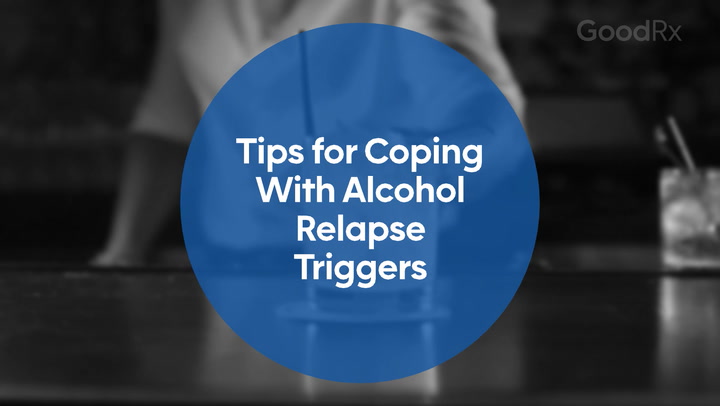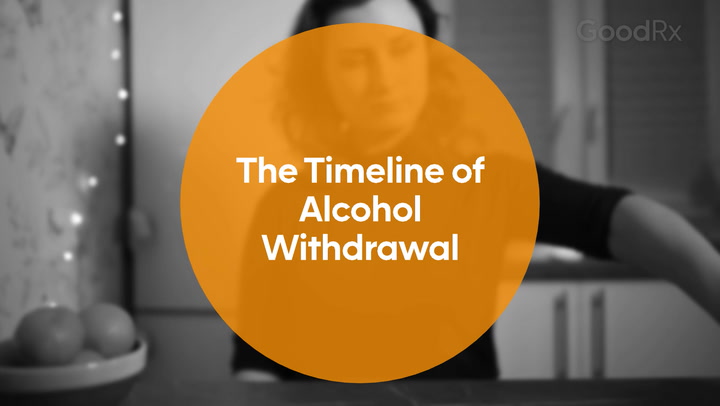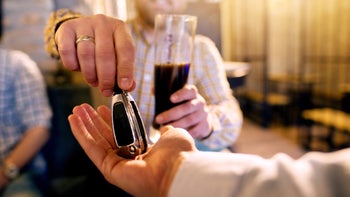
Thinking of Stopping Drinking? 9 Tips to Succeed
Key takeaways:
Cutting down on alcohol is one of the best things you can do for your physical and mental health.
If you’re thinking about quitting alcohol, talk to your healthcare professional first. They can give you more information about how alcohol affects your health. They can also support you to stop drinking safely — and for good.
Other strategies that can help you quit include setting goals, building a good support network, and managing your cravings and triggers.
Table of contents

Though alcohol can be fun for adults, the facts are clear: It’s not good for your long-term health. Experts agree that, like cigarettes, alcohol can cause cancer. It can also have a big impact on your overall mental and physical health. In some people, it can even lead to alcohol use disorder (alcoholism).
With all this in mind, it’s no surprise that many people consider cutting down. And if you’re planning to quit, you may wonder if it’s safe to do so on your own. For some, the answer is yes. But for others, quitting without medical guidance can be dangerous.
Continue reading for tips about how to safely quit drinking alcohol, when to get professional help, and what you should know about alcohol withdrawal.
Search and compare options
1. Talk to a healthcare professional
If you’re thinking about changing your drinking habits, it’s always a good idea to check in with your healthcare professional first.
Talk with your healthcare professional to learn more about:
Your relationship with alcohol
How drinking affects your health
The safety of stopping drinking suddenly
The availability of medications that could help you stop drinking
There’s even evidence suggesting that talking to your healthcare professional early on might help prevent future relapses.
2. Stay safe
Many people can safely stop drinking alcohol on their own. But sometimes quitting can be dangerous. Before you quit drinking on your own, talk to your healthcare professional — especially if you drink excessively. But more on this later.
Your healthcare professional can help you come up with a plan to stop drinking. And they can give you advice for how to stay healthy in the process. They can also support you along the way and prescribe medications if needed.
Are you self-medicating with alcohol? Recognize the signs that drinking is a coping mechanism. Learn some ways to stop.
Dry January can change your life. Cutting out alcohol for a month can teach you a lot about yourself and your relationship with alcohol.
How quitting alcohol can transform your health and happiness. Discover the short- and long-term benefits of sobriety.
3. Set goals
After you’ve talked to your healthcare professional, set a goal. This goal might be to quit alcohol completely or to simply cut back. Write your goal down and keep it somewhere you’ll see it often. Some people like to choose a date to become sober or sober curious. It can also be helpful to share your goal with a trusted friend or family member, so they can help you stay motivated.
4. Manage cravings
An alcohol craving is a strong desire to drink. Cravings are common, especially in the early days after you stop drinking. Although cravings can feel overwhelming in the moment, they will pass.
You can learn to manage them by distracting yourself or using things like mindfulness or visualization. Medications like naltrexone and gabapentin can also help decrease cravings.
5. Identify triggers
A trigger is anything that makes you want to drink alcohol. Triggers are different for everyone. For some, it’s stress or other emotions. For others, it might be specific situations, people, or places. No matter what your triggers are, learning to identify and manage them is key to staying sober.
6. Schedule new activities and hobbies
One way to avoid drinking alcohol is to look for new activities and hobbies — especially ones that aren’t centered around alcohol. Try exercising, taking walks in nature, or finding a creative outlet like drawing or writing. You may also want to spend more time with friends and family who support your decision to cut down on drinking.
And remember: You don’t need alcohol to have a good time. It can take time to find sober activities you enjoy, but hang in there. There are plenty of healthy and enjoyable ways to spend your time without alcohol.
7. Reach out to your support network
If you’re comfortable, share your goal with friends and family. They can help support you and keep you on track. Many people also find it’s helpful to join a support group or to see a therapist or counselor.
8. Recognize that relapses are common
It’s normal to have setbacks when you’re trying to stop drinking. Changing your relationship with alcohol can be hard. But having a relapse doesn’t mean you failed. In fact, relapses are very common — and even expected — during the process of quitting alcohol.
The important thing is to not be too hard on yourself. Keep trying and learn from your mistakes. You can always get back on track. With time, patience, and good support, you can successfully change your drinking habits.
9. Celebrate milestones
If you’ve decided to stop using alcohol, it’s important to celebrate your successes. When you reach a milestone, treat yourself to something you enjoy. It can also be fun to share your wins with friends and family. Milestones are a great time to pause and reflect on what worked for you — and what didn’t.
Is it time to quit drinking alcohol?
The decision to stop drinking is totally up to you. Maybe you’re interested in quitting for health reasons. Maybe you’re doing a “Dry January” with friends. Or maybe you just don’t like the role alcohol plays in your life. But the reality is that only you can decide when the time is right.
That said, some people should definitely consider quitting. According to the National Institutes of Health (NIH), this includes people who:
Are pregnant
Have tried to cut down but haven’t been successful in the past
Have a health problem that is caused by alcohol
Have a health problem that’s getting worse because of alcohol
Take medication that is unsafe to mix with alcohol
Not sure about whether you’re ready to quit? Consider talking to a friend, family member, or healthcare professional you trust. They can give you another perspective. They may also have insights on how alcohol affects your health and personal life.
How do you know if you have a drinking problem?
Sometimes, it’s tough to know whether you have a problem with drinking (alcohol use disorder). Here are some questions to ask yourself:
Do you have a hard time controlling your alcohol use?
Do you feel like you should cut back?
Does alcohol cause problems for you at work, school, or home?
Do you get annoyed when other people suggest you have a problem?
If any of these questions ring true for you, consider digging a little deeper by taking a self-assessment. The Alcohol Use Disorders Identification Test (AUDIT) is a screening tool used by professionals worldwide (and it’s available for free online). It can tell you more about how alcohol is affecting your health and whether you’re at risk for alcohol withdrawal (more on this below).
Is quitting good for your health?
Yes. Quitting alcohol is one of the best things you can do for both your mental and physical health.
Health benefits of quitting include:
Better heart health
Decreased cancer risk
A stronger immune system
Improved liver health
Improved mental health
Better sleep
Can it be dangerous to stop drinking on your own?
Yes. If you drink heavily, it can be dangerous to stop using alcohol on your own. This is because people who drink a lot can become physically dependent on alcohol. Those who are physically dependent may experience alcohol withdrawal when they quit — especially if they quit suddenly.
Alcohol withdrawal is uncomfortable and it can be dangerous. Withdrawal symptoms include:
Shaking
Sweating
Fast heartbeat
Headache
Stomach upset
Depression
Anxiety
Sleeping problems
About 10% of people will also have life-threatening withdrawal symptoms, like fever, seizures, and hallucinations. And in some cases, alcohol withdrawal can even be deadly.
If you drink heavily, talk to your healthcare professional about how to quit safely. No matter how much you’re drinking, it’s possible to manage withdrawal with the right medical support. Your healthcare professional can also help you understand if it’s safe for you to detox at home or if you should stay in a hospital or treatment center.
The bottom line
If you’re trying to change your drinking habits, you’re not alone. Millions of people are on the same journey. You can set yourself up for success by talking to your healthcare professional, getting support from friends and family, and learning to manage cravings and triggers. With the right support and encouragement, it’s possible to safely stop drinking alcohol — and for good.
Why trust our experts?


References
Centers for Disease Control and Prevention. (2024). Alcohol use and your health.
Drinkaware. (2022). Alcohol withdrawal.
National Cancer Institute. (2021). Alcohol and cancer risk.
National Institute on Alcohol Abuse and Alcoholism. (2024). Understanding alcohol use disorder.
Rethinking Drinking. (n.d.). To cut down or to quit.
Trevisan, L. A., et al. (1998). Complications of alcohol withdrawal: Pathophysiological insights. Alcohol Health & Research World.
If you or someone you know struggles with substance use, help is available. Call SAMHSA’s National Helpline at 1-800-662-4357 to learn about resources in your area.

























